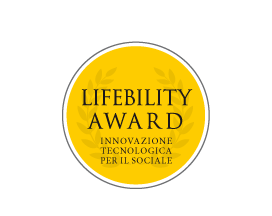LB11.044P_Maskèdra – Smart.Safe.3D.
Per partecipare al concorso i progetti vanno inviati entro:
di Alessandro Perez e Silvia Pagnoncelli
Nel marzo 2020 il reperimento di strumenti di protezione come guanti e mascherine è diventato difficile nel giro di pochi giorni, con un aumento di prezzi esponenziale. Abbiamo cercato di rispondere alla domanda di mascherine tenendo conto delle conseguenze che un utilizzo globale avrebbe comportato: miliardi di mascherine che avrebbero riempito i mari di elastici, tessuto non tessuto (TNT) e pezzi di metallo.
Abbiamo avviato un progetto per la realizzazione di una mascherina in materiale biocompatibile a basso impatto ambientale, riutilizzabile e a lunga durata, sicura e adattabile a tutti i volti. La stampa 3D soddisfa le esigenze di biocompatibilità, di personalizzazione e di non citotossicità: abbiamo progettato un guscio stampato in 3D altamente sicuro, che funge da supporto per un filtro realizzato con il tessuto delle mascherine chirurgiche ma di dimensioni ridotte dell’80%. La nostra mascherina, Maskèdra, permette di ridurre di oltre il 300% i rifiuti di TNT perché, oltre ad avere un filtro piccolo, ne permette un utilizzo per un tempo quadruplo rispetto alle mascherine chirurgiche (il filtro è distante da bocca e naso). Gli elastici e il guscio sono lavabili, resistenti e disinfettabili; il guscio è realizzato in TPU (poliuretano termoplastico) garantito per migliaia di cicli di utilizzo. Maskèdra può essere utilizzata da categorie professionali e da singoli utilizzatori, permette un’agevole respirazione e ha una microstruttura superficiale che trattiene la condensa senza bagnare il viso. L’utilità sociale di Maskèdra è insita nel prodotto: uno strumento di protezione altamente sicuro, comodo, personale, riutilizzabile e biocompatibile. Il livello di sicurezza di Maskèdra è dato da un’ottima ergonomia e aderenza al viso e da un indice di filtrazione batterica che arriva al 99.7%; inoltre protegge anche dagli spruzzi senza penalizzare la respirabilità, con un differenziale di pressione estremamente basso. Maskèdra può essere stampata con adattamento al viso di un soggetto senza avere costi supplementari: finora l’unica sul mercato. Il prodotto è in fase di industrializzazione ed è certificato e marcato CE, oltre che registrato presso il Ministero della Salute. Il progetto Maskèdra ha partecipato al bando Avviso 1/2020 della Provincia di Trento, classificandosi al primo posto.
In March 2020, the procurement of protective tools such as gloves and masks became difficult within a few days, with an exponential increase in prices. We tried to answer the demand for masks by taking into account the consequences that a global use would have entailed: billions of masks that would have filled the seas with rubber bands, non-woven fabric (TNT) and pieces of metal. We have started a project for the creation of a mask in biocompatible material with low environmental impact, reusable and long lasting, safe and adaptable to all faces. 3D printing meets the needs of biocompatibility, customization and noncytotoxicity: we have designed a highly secure 3D printed shell, which acts as a support for a filter made with the tissue of the surgical masks but with a size reduced by 80%. Our mask, Maskèdra, allows you to reduce non-woven waste by more than 300% because, in addition to having a small filter, it allows it to be used for four times the time compared to surgical masks (the filter is far from the mouth and nose).
The elastics and the shell are washable, resistant and disinfectable; the shell is made of TPU (thermoplastic polyurethane) guaranteed for thousands of cycles of use. Maskèdra can be used by professional categories and individual users, allows easy breathing and has a surface microstructure that retains condensation without wetting the face. The social utility of Maskèdra is inherent in the product: a highly safe, comfortable, personal, reusable and biocompatible protection tool. The safety level of Maskèdra is given by excellent ergonomics and adherence to the face and by a bacterial filtration index that reaches 99.7%; moreover, it also protects against splashes without penalizing breathability, with an extremely low-pressure differential. Maskèdra can be printed with adaptation to the face of a subject without having additional costs: so far, the only one on the market. The product is in industrialization and is certified and CE marked, as well as registered with the Ministry of Health. The Maskèdra project participated in the notice 1/2020 of the Province of Trento, ranking first

